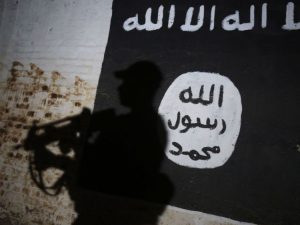Charlie Hebdo… the Madrid attacks… van attacks in Berlin and London … Paris 2015 … Brussels 2016 … Barcelona 2017… Why?
The real answer is very intricate, but we can grasp part of it if by knowing more about Arab communities and their educational systems in non-Arabic countries, like reported by eurasiareview.com.
“Unlicensed institutions, centers and imams in Europe ruin the future of the immigrants. They teach in isolation. Bodies grow in Romania and minds grow in strange lands! Unlicensed institutions become social and religious extremism-generating environments,” says Mazen Rifai, a Syrian journalist naturalized in Romania in 1990. Rifai also serves as secretary of the League of Syrians in Romania, and is generally very well informed about the situation of immigrants across Europe.
He believes he has found the essence of a failed approach to integration in non-Arab countries. His basic idea is that part of the immigrants’ failure to find their place in Europe is the educational system implemented by Arabs in non-Arabic countries. A schizoid manner of teaching them about their identity and purpose in life results into breaking their personality, instead of making them strong and genuinely proud to live in their new country.
Mazen Rifai performs a critical X-ray of this Arabic educational system in non-Arabic countries: “The Arabic educational system is isolated from the surrounding community. It happens also in Romania, schools with Arabic educational curricula!”
Mr Rifai explains that students in those schools mentally belong to socially, politically, and economically underdeveloped countries and intellectually, they are forced to understand the mindset of other countries, so they learn curricula that are unrelated to the society which they actually live in, and unrelated to science. Their brains are stuffed with information that doesn’t interest them and they won’t use.
“Unlicensed institutions, centers, and imams in Romania build walls separating their students from the society in which they live and develop a schizophrenia inside their students, forcing them to live in two different and contradictory societies,” says Mr Rifai. “To compensate for the emptiness caused by these discrepancies between two societies and two cultures, Arabic schools educate on a nervous tendency and imaginary superiority over their community. Their thoughts and beliefs contribute in building hatred and seclusion tendencies and a sense of injustice and oppression among their students, so that their loyalty is aimed at a state outside their state, and a community outside their community. They look with a contemptuous eye and sometimes with hatred at their surroundings.”
This educational curricula and method leads to loneliness, isolation, fear, anxiety, and social contradictions, fostering negative values and encouraging extremism. And “parents are involved in this crime,” believes Mazen Rifai, “without being aware, [they are] depriving their children of education and excellence, and leading them to isolation and seclusion when they put them in institutions that appear to their charity, marketing themselves as educational institutions that maintain customs and traditions through religious teaching. However, they teach children submissiveness and surrender, and prepare them to enter the courts of dictatorship-like obedience to one person: the manager of the school, the father at home, and the religious leader elsewhere. So, it kills everything in them! Declaring that home-based education protects children against negative aspects of the Romanian society in terms of sexual freedom, drug problems, and bad companionship is a false statement. Arabic schools don’t limit or eliminate the problems of students and the problems of adolescence, neither in Romania nor in Arab countries. This is an illusion.”
There are no schools that teach full-time Arabic curriculum and grant Arab baccalaureate degrees in Europe. There are official and non-official Arab schools that teach Arabic only on weekends or after official school hours, while formal education is exclusively in the native language of the country in question.
The situation of the Arabic schools in Romania looks inappropriate for preparing Arabs to cope with the society they live in, according to Mr Rifai. If the student educated in Romania returns to live and work in an Arab country (Iraq, Jordan, Lebanon, Palestine, Egypt, Syria), his affiliation with these Arab schools would be helpful. However, if the student wants to complete his life and future in Romania, he should study in the Romanian language in Romanian schools to ensure oneself equal opportunities with one’s Romanian colleagues. Because of the lack of recognition of studies, graduates of Arabic schools cannot complete their studies in other forms of official education. The history of these schools shows that they have not been able to provide a healthy model for the new Arab generation and have not been able to help their graduates to obtain scholarships, or get jobs. Even Arab embassies and Arab schools have not employed any graduates of these schools.
Legally, there is not yet an Arab school in Romania that has an educational license as a school officially accredited by the Romanian Ministry of Education, like the Turkish, French, and British private schools. Arabic Schools in Romania are institutions and cultural centers licensed as non-profit educational institutions (cultural centers), entitled to licensed cultural activity such as any Romanian private non-government organization (NGO), and are granted the necessary approvals from the competent authorities, such as any restaurant, shop, language institute, or institute of vocational education, not as regular schools.
“In Germany, for example, most of the Arab and Muslim community learn in German governmental schools and there are classes for Arabic and Islamic religion. Although these classes are optional, even Islamic religion is taught in German language,”says Mr Rifai.
Mr. Rifai goes on to suggest a solution: “Don’t close these institutions, but work to give them their useful and true dimension in society. Convert these schools into formal vocational schools, in order to become religious schools that are committed to the school curriculum developed by the Ministry of Education, and focused on religious education and language. Grant valid certificates of education to facilitate access to the labor market, scholarships, and educational trips and exchanges.”
A lack of integration between Arabic education and the educational system of the country where students live appears to lead to reduced ability for social integration and mental isolation. Hence, less economic privilege and more hatred, extremism, and eventually crime. The dictatorial administration of the Arabic schools satisfies the arrogance of some parents and brings false reassurances regarding the future of their children. But in actual fact, they only build walls…












